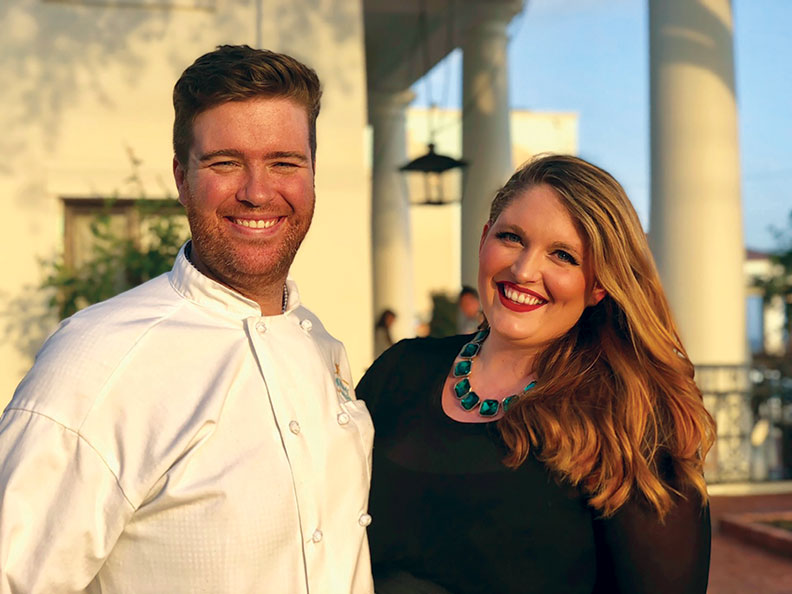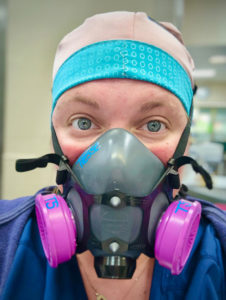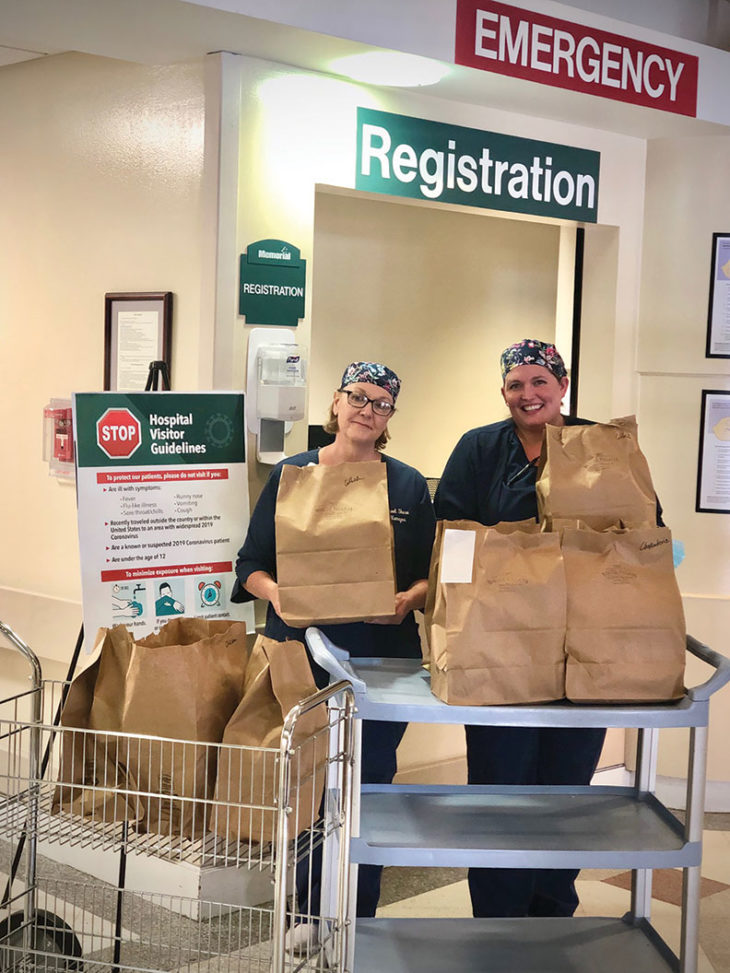
As a nurse, Tresse Sumrall’s most formative experience was working in a level-one trauma emergency department at the University of Alabama at Birmingham Hospital.
She started there less than a year out of nursing school and found herself dealing with the “sickest-of-the-sick” patients.
“Gunshot wounds, stabbings, high-speed car and motorcycle accidents and burns were all in a normal day’s work,” Sumrall says. “I saw a lot of things I will never forget and learned a tremendous amount about emergency nursing during my time there.”
Those skills and knowledge have served the wife, mother, health care professional and restaurateur well through the challenges of the COVID-19 pandemic. Like many women, Sumrall was forced to switch gears quickly in response to the crisis.
On the Coast, several female entrepreneurs and leaders demonstrated resilience and out-of-the-box thinking to meet the community’s needs. Alexis Williams, founder of Aloha Glamour boutique, started selling reversible, reusable masks. Leslie Henderson, co-owner of Lazy Magnolia, started brewing up hand sanitizer instead of flavored shelters.
For Sumrall, a registered trauma nurse in Gulfport Memorial Hospital’s emergency department, the pandemic required a new routine. She and her husband, Austin, had to arrange care for their 5-year-old son, Ollie, during her three-day work stretches, which usually involved her parents. Coming home, she’d strip down in the garage, take her scrubs straight to the washing machine and jump in the shower. When she and Austin started offering takeout at their Biloxi restaurant, White Pillars, she would help with that on the weekends while also managing Ollie and his schoolwork.

“I’ve tried through all of this to keep myself as safe as possible while at work and take proper precautions to ‘decontaminate’ myself responsibly once at home so I don’t have to worry so much about my family — restaurant family included,” she says.
White Pillars has since reopened for dine-in, and Sumrall has maintained her decontamination ritual. She’s still spending considerably less time at the restaurant on her off days because Ollie is still out of school.
“He is set to start summer camp …, and I’m hoping we can start getting back to normal,” she says.
As a nurse fighting on the front lines against a deadly virus, Sumrall says what stands out most are all the unknowns.
 “You’re in a constant state of overthinking symptoms and being super cautious just in case they may have it — even if, by their symptoms, you know they probably don’t,” she says. “It’s pretty anxiety producing, honestly.
“You’re in a constant state of overthinking symptoms and being super cautious just in case they may have it — even if, by their symptoms, you know they probably don’t,” she says. “It’s pretty anxiety producing, honestly.
“You don’t want to be cavalier about something and end up exposing yourself or your coworkers, and on the other side of the coin, you are trying to be a good steward of your PPE (personal protective equipment) and not use it when it’s unnecessary.”
In Sumrall’s other role as co-owner of a small business, she and her husband faced the challenge of keeping the doors open and employees paid while navigating ever-changing circumstances and protocols. In what should have been the start of their “busy season,” they found themselves having to adapt and innovate. They’re far from alone in a business that sustained huge revenue drops when margins were already slim.
“Now that we have been allowed to reopen our dining rooms, we have pivoted to ensure we are following all the rules,” Sumrall says. “But maybe even more importantly, (we’re) displaying to our guests that we are taking this seriously and creating an environment where they feel safe and comfortable to dine in with their families.”
Restrictions may have lifted, but Sumrall urges people to keep a healthy respect for COVID-19 and stay educated and aware. One good outcome of the illness, she says, is widespread education about good health practices like handwashing and staying home while sick.
“I have no idea what the future holds any more than the next guy,” she acknowledges, “but I do think this has forced us to adapt, and we will be stronger and more prepared as a result.”



